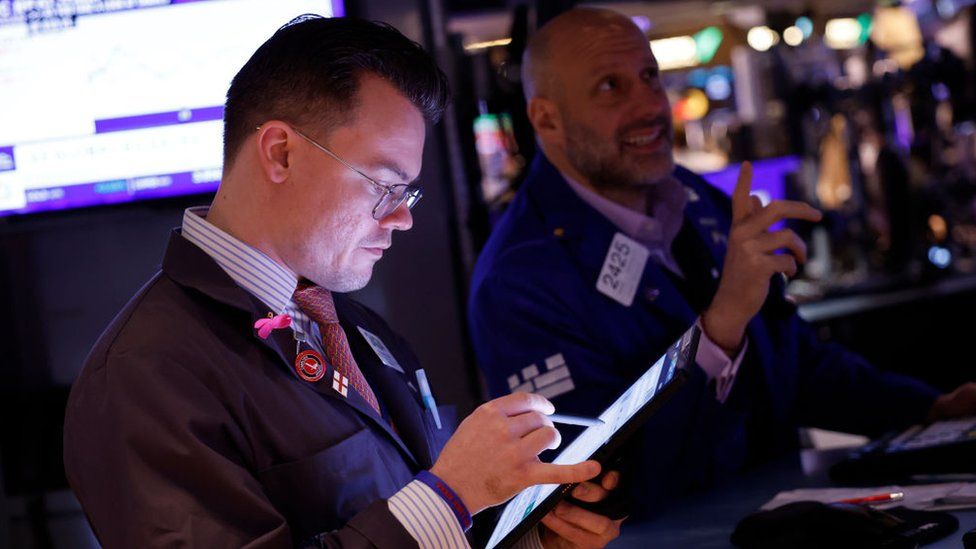ARTICLE AD BOX
 Image source, Getty Images
Image source, Getty Images
By Natalie Sherman
Business reporter, New York
America's Nasdaq index, home to many tech companies, has hit a new high, which analysts attributed to optimism over artificial intelligence (AI).
The Nasdaq rose 0.9% on Thursday, to 16,091.92, formally rebounding from the Covid slump that hit shares in 2021.
Investors expect AI to unleash a new wave of growth and have been snapping up shares of companies poised to benefit, like chipmaker Nvidia.
They are also increasingly optimistic about the path for the US economy.
Late last year, the Dow Jones bounced back from its post-Covid dip, followed by a similar result for the S&P 500 in January, which also made up many of its pandemic losses.
On Thursday, the Dow ended 0.1% higher at 38,997, while the S&P closed up 0.5% at 5,096.27, another new high.
It marked a fourth month in a row that all three indexes have gained.
Chipmaker Nvidia, whose market value briefly touched $2tn (£1.58tn) this month, was one of the major companies driving the rally, rising 1.87%.
Microsoft, which on Wednesday announced new AI-powered features for finance workers using products such as Excel and Outlook, rose 1.45%.
Smaller chipmaker AMD and PC maker Dell, which is poised to benefit as firms invest in new equipment to handle AI-powered computing, also climbed on Thursday.
The gains come as investors hope the US central bank is nearing the end of its inflation fight and will start lowering its key interest rate soon, making borrowing cheaper, which businesses hope will help money flow more freely in the economy and increase investor and business activity.
On Thursday, the US's Department of Commerce said the personal consumption expenditures (PCE) price index, an alternative inflation measure that is watched by the Federal Reserve, fell to 2.4% in January, down 0.2% from December.
The report was in line with expectations.
Earlier in February, Japan's main stock index hit an all-time closing high, surpassing the previous record set 34 years ago, even as the country's economy fell into a recession.

 1 year ago
52
1 year ago
52








 English (US) ·
English (US) ·